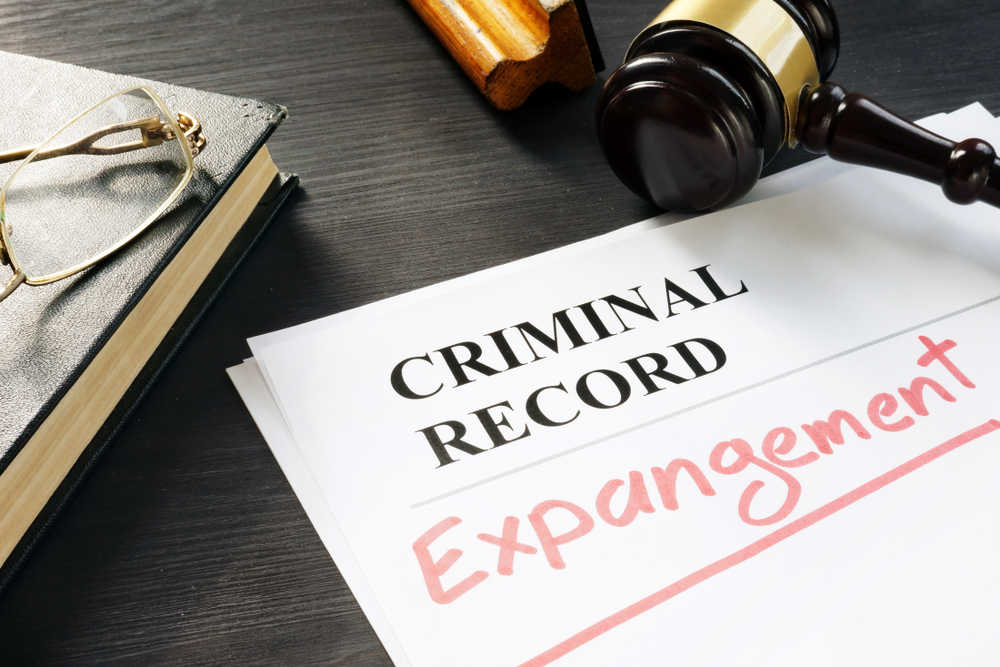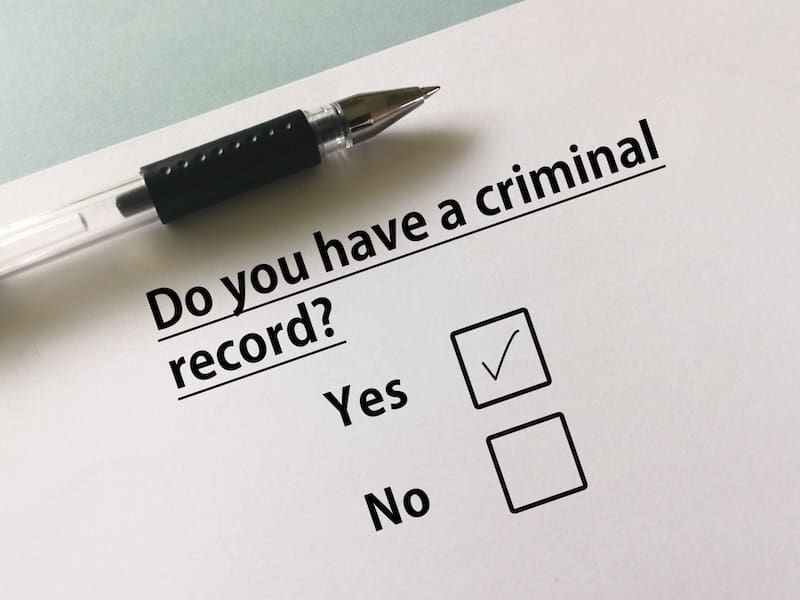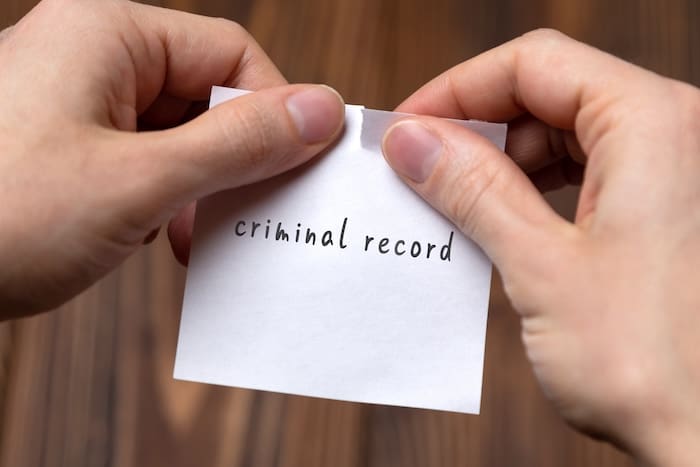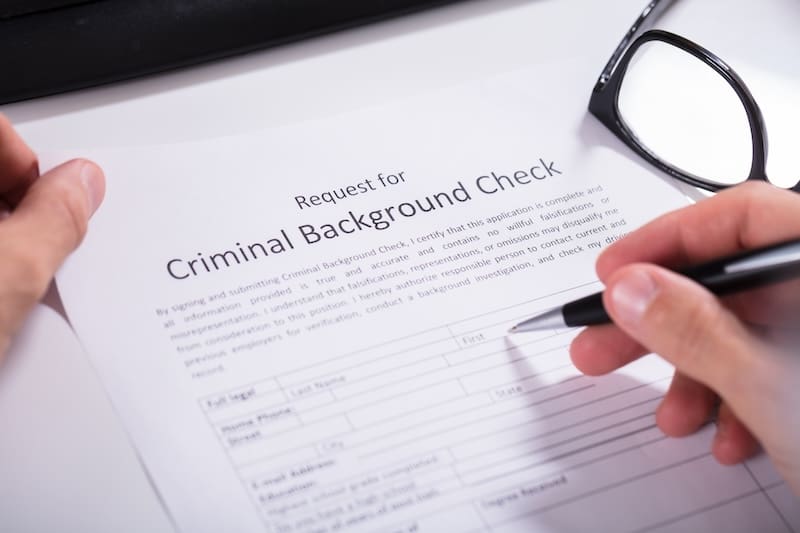
This guide will show you how to clear your record of a felony, though note that steps may differ based on your state.
Criminal record sealing and expungement law varies by state. For specific steps, it’s best to refer to your state’s law that deals with expunging and sealing criminal records. However, this overview will give you an idea of what to expect and help you become familiar with the general process of clearing a person’s criminal record of a felony.
To speak with an online reputation expert about managing the content that’s available about you on the internet, fill out the contact form below or call us at 844-461-3632 for a free consultation.
Request a Free Consultation
Expungement vs. Sealing: What’s the Difference?


When you have your criminal records expunged, they’re 100% destroyed. Some states don’t allow for any criminal records to be expunged.
When your criminal records are sealed, they still technically exist, but they’re hidden from the public. That means that if someone searches for your name online, they shouldn’t see information about a felony conviction that’s been sealed.
The same is true for running background checks. If an employer, landlord or anyone else pays for a background check, sealed criminal records shouldn’t show up.
Even if your criminal record has been expunged or sealed, it may still show up in Google search results, especially if a mugshot website or data broker got ahold of the information when it was still available to the public.
For help with content removal to protect your online reputation, call us at 844-461-3632 for a free consultation.
Prerequisites for Removing Criminal Records


Being able to seal or expunge your felony typically comes with requirements that must be met. Let’s go over them here.
Number of Felony or Misdemeanor Convictions
Sometimes, the law allows for the sealing of felony conviction records if the individual has a limited number of total convictions, including no more than one felony conviction.
Here’s an example: A person with two convictions, one of which is a felony, can have their conviction records sealed for most crimes. Certain crimes, like sex offenses and violent crimes, may not be eligible for sealing.
In some cases, a person with more than two convictions may still be eligible for court record sealing if the convictions are closely related and part of the same incident.
For example, if one incident resulted in you being charged with multiple crimes, those multiple convictions may be treated as one since they’re part of the same incident.
Type of Conviction
While many felonies are eligible for sealing or expungement depending on your state, there are certain crimes that typically can’t be removed from your criminal record, such as the following:
- Class A felonies, such as kidnapping or murder
- Homicide offenses and related crimes
- Sex offenses or offenses that require you to register as a sex offender
- Other types of violent felonies
Additionally, conspiracy to commit one of the felony types listed above may result in a conviction that cannot be removed.
Waiting Period
There’s usually a waiting period that must run out before the individual can request that their criminal record be sealed, such as 10 years.
Note that the waiting period is from the date of your most recent conviction or release from jail or prison, not the date of the felony you want removed.
The time that’s spent on parole or probation may count toward the 10 years but not time spent serving in jail or prison.
For example, if your felony conviction took place 15 years ago but you were in prison until 6 years ago, then you’ll have to wait an additional 4 years. But if your conviction was 15 years ago and you were on probation up until 6 years ago, you’ve fulfilled more than the 10 years and can request the removal of your criminal record.
Proof of Rehabilitation
One of the major considerations when deciding whether or not to remove your felony conviction from your record or public access is your rehabilitation.
It’s important to submit details about your experiences and accomplishments since your latest conviction to show that you’ve changed.
Proof of rehabilitation may include:
- Certificates of completing alcohol or drug programs
- Compliance with parole or probation requirements
- Job training certificates
- Mental health counseling
- Proof of employment or volunteer work
- School transcripts
- Supporting letters from employers or educators
- Verification of negative drug tests
Additionally, you can also write a personal statement to explain how you’ve been rehabilitated and the ways you’ve changed.
Additional Requirements
It’s common for other types of requirements to have to be met as well.
Often, you can’t have a felony record removed if you have pending criminal cases. Additionally, you won’t be able to have a conviction removed if you’re a registered sex offender or need to register as a sex offender.
Also note that convictions that aren’t eligible for sealing are not typically eligible for expungement, either.
How To Clear Your Record of a Felony: Step by Step


When you’re ready to apply to seal or expunge your felony record, the process isn’t nearly as simple as filling out and submitting a form.
Also, keep in mind that having your felony conviction removed is neither automatic nor guaranteed. Even if you follow the expungement process perfectly, it’s not a sure thing that your record will be removed.
Your best bet is to have a compelling reason for wanting your conviction removed and include all the paperwork and evidence possible to support your request.
1. Get your Certificate of Disposition.
You’ll need to provide the original Certificate of Disposition for the felony offense you want removed. This is an official court document that includes details of your crime, charge, conviction and sentence.
You can request the Certificate from the court that issued it.
2. File the sealing application.
When you have the Certificate of Disposition, you’ll need to complete the official motion to remove your conviction. Along with the application, you’ll need a sworn statement that includes the reasons why you’re requesting removal.
Any evidence you can provide at this stage will be helpful, such as:
- Character reference letters
- Education or employment verification
- Proof of charitable or volunteer work
Additionally, if you completed something like a substance abuse program, make sure to include the completion certification with your application.
3. Send the motion to the District Attorney.
Next, you’ll send the application to the District Attorney in the county where you were convicted. It’s best to send the motion by certified mail so you can ensure it’s delivered and prove that it was received.
4. Complete an Affidavit of Service.
Once the DA has been served with your motion, you may have to complete an Affidavit of Service form and sign it in front of a notary. You can find a notary at many UPS locations, as well as law, real estate and tax offices.
5. File the removal application.
Make sure to make copies of all of the documents you’ll be filing and keep them on hand for your own reference.
File the removal application with the court. Include your Certificate of Disposition, Affidavit of Service, and all supporting documents. You’ll need to file the application in the same court where you received your sentence.
6. Wait for a decision.
Ultimately, it’s up to the judge whether or not your record is sealed or expunged. You’ll have to wait for a decision to be made, and the turnaround time varies widely from state to state.
If the judge opts to remove your record, the District Attorney will have a chance to object. If this happens, there will be a hearing to determine the outcome.
It’s also possible that the DA can object to your application before a decision is made.
Typically, after you file your application, the court will review the full extent of your criminal history, including out-of-state information and details of sealed or suppressed records.
7. Attend the court hearing.
If there’s an objection to your request, you’ll have to attend a court hearing before the judge. During the hearing, the judge will take into consideration your character, your criminal history, and your behavior since the conviction. They’ll also consider the nature of the criminal offense and victim statements. Additionally, the judge will consider whether or not your court records should be available to the public.
8. Confirm the record’s been removed.
Even if your record has been approved for removal, sometimes court systems make mistakes and don’t properly seal or expunge convictions.
When the approval goes through, you’ll receive a signed order related to the outcome, such as sealing or expungement.
You may be able to fill out a request to receive a verification form to ensure your record has been removed. Make sure to send in the signed order along with your request as proof of the decision.
Next, you should receive a letter from your state that confirms the sealing or expungement of your record.
7 Factors the Court Considers Regarding Removal of Your Conviction Records


When the court is deciding whether or not to grant your request for felony conviction removal, they’ll consider a number of factors, including the following:
- The amount of time that’s passed since your conviction.
- The circumstances of your conviction and the original charge.
- Your character and behavior.
- Steps that you’ve taken toward rehabilitation, like getting a job, going to school, volunteering, or completing special programs.
- Statements from victims of your offense.
- How removing your records will impact your rehabilitation and ability to re-enter society.
- If removing your records will negatively impact the public’s safety.
Ideally, the court wants proof that you’ve taken steps to improve yourself and your life.
FAQ About Clearing Your Record of a Felony


Can anyone see my records after they’ve been removed?
When a felony conviction is removed from a person’s criminal record, the public won’t be able to find out information about it or even see that it existed in the first place. This includes landlords, employers and other similar interested parties.
However, the record may still be viewable in some cases. For example, you or a person you authorize will still be able to access information about the conviction.
Furthermore, certain law enforcement agencies, like DA offices, courts, and sheriff’s offices, may be able to see information about the conviction. Plus, agencies that issue firearm and gun licenses or permits will be able to see the conviction on your record.
Lastly, if you apply for a job as a peace officer or police officer, your potential employer will be able to see the record.
Can an employer deny me a job based on a sealed conviction?
While you’ll have to refer to state law, in general, no, an employer cannot legally deny you employment due to a sealed felony conviction. The only exception to this is if you’re trying to get a job in law enforcement.
If an employer asks about your criminal history, either on a job application or in person, this doesn’t not include your sealed convictions. In other words, you don’t have to discuss sealed felony convictions even if the employer specifically asks about your criminal background.
Can I vote if my felony conviction record is sealed?
Yes, you can vote if you have a sealed record, and you may also be eligible to vote even if your felony conviction isn’t expunged or sealed. Refer to state law for specifics about voting if you have a criminal background or an arrest record.
Final Thoughts About Protecting Your Online Reputation
When it comes to having a felony conviction expunged or sealed, it’s best to speak with a criminal offense attorney. This is the only way to ensure you file properly and present the best argument possible in your favor.
Additionally, the experts at NetReputation can help you clean up your online reputation with various ORM techniques. Contact us today by filling out the form below or calling 844-461-3632 for a free consultation.
Request a Free Consultation














